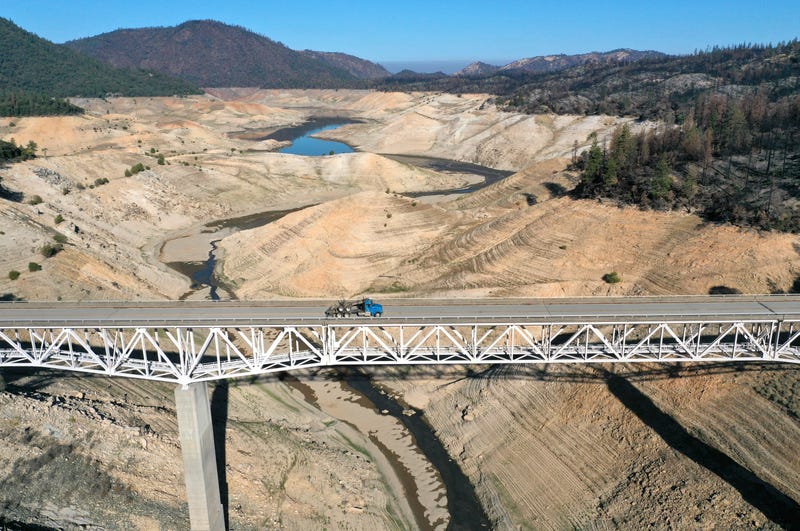
California water officials on Thursday took an unprecedented step amid its unprecedented drought, pointing the finger at climate change.
The state Department of Water Resources took the Hyatt Powerplant, one of the state’s largest hydroelectric plants, offline due to low water levels at Lake Oroville.
The department said it was the first time the plant has been taken offline due to low lake levels since construction was completed in 1967. Hyatt is the state’s fourth-largest hydroelectric energy producer, according to the California Energy Commission.
"This is just one of many unprecedented impacts we are experiencing in California as a result of our climate-induced drought," Karla Nemeth, the department’s director, said in a statement on Thursday. "California and much of the western part of the United States are experiencing the impacts of accelerated climate change including record-low reservoir levels due to dramatically reduced runoff this spring."
Nemeth also called on state residents to reduce water usage by 15% "to preserve as much water supply and storage as possible should we experience another dry year."
The announcement was made just a day after officials said Lake Oroville reached its lowest-ever water elevation of 642.75 feet above sea level. The elevation could diminish to as low as 620 feet this fall.
Over 88% of the state was in extreme or exceptional drought conditions as of Tuesday, according to the U.S. Drought Monitor. Nearly half of the state (46.5%) is in exceptional drought, which the Drought Monitor says can lead to increased greenhouse gas emissions "as hydropower production decreases."
Last year, non-CO2 emitting power sources accounted for about 51% of in-state energy generation. That was down from about 57% in 2019, as hydroelectric generation reached some of its lowest levels this century due to historically dry and hot weather.
Nemeth said the department was in “regular communication” with the California Independent Service Operator and the Energy Commission.
"(The department) anticipated this moment, and the state has planned for its loss in both water and grid management," Nemeth said.

